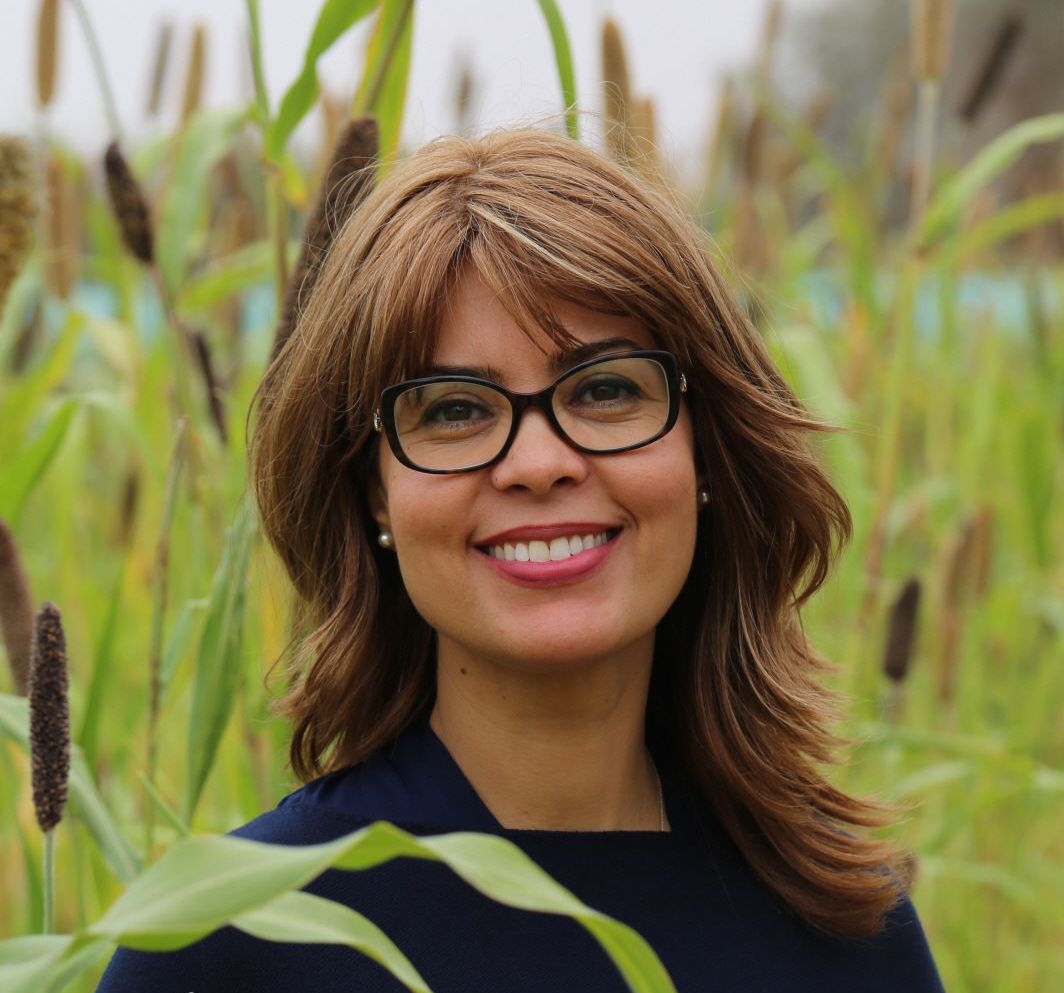|
Getting your Trinity Audio player ready...
|
Experts and agricultural researchers have advocated the adoption of technologies and innovation to produce intensive agriculture and bridge the yield gap between Africa and other continents so as to ensure food security in the continent.
The researchers, from different research groups including the International Institute of Tropical Agriculture (IITA), International Livestock Research Institute (ILRI), WorldFish, AfricaRice, and CGIAR, the largest publicly funded international agriculture research, among others, were unanimous in the suggestion that agricultural transformation is important to ensuring food, nutrition, and environmental security in Africa.
The experts disclosed this at the Conference Hall of the IITA, in Ibadan, Oyo State, during the visit of the Executive Managing Director (EMD) of CGIAR, Dr Ismahane Elouafi, who is on a tour of CGIAR centers all over the world.
In her remark, Dr. Elouafi harped on the importance of food security and ‘sustainability’ because Africa does not produce enough for its population but relies on importation despite its fertile land and large young population, asserting that the sector needs to be developed in order to make agriculture a sector to have economic empowerment, generation of wealth, and generation of employment for the youth population.
She stated: “So we have the youngest population. This youngest population is educated, needs employment, and needs new opportunities. Enhance the agri-food system or the agriculture sector at large, including agriculture, forestry, animal source, fisheries, all of those that are in the agriculture definition in the United Nations.”
Collaboration
The EMD advocated more collaboration between different CGIAR centers in terms of integration and supporting national systems in the least-income, low- and middle-income countries so as to transform their agri-food system towards more efficiency, more inclusiveness, resilience, and sustainability for better impact in terms of zero hunger, no poverty, or reducing poverty and inequality.
On his part, the Director General of IITA and CGIAR Regional Director for Africa, Simeon Ehui, appealed to African countries to do their best to contribute to food security and combat food insecurity and hunger in their respective countries, saying the problems of food insecurity and malnutrition continue to increase significantly in Africa.
He noted: “With population growth rate, we have no less than 300 million people going hungry every day in Africa. When you look at the map of the world, there are 24 hunger hotspots, 16 of them are in Africa, and we need to be able to do something about it.”
Ehui called for continued demonstration of the impact of ensuring food security and eradicating poverty among the people in Africa so that donors, foundations, the bilateral, and countries that are providing resources would continue to be supportive of providing resources because they see the impact on the ground.
Eight reports were presented by some of the research groups at the meeting, which highlighted the activities of the groups towards enhancing food and nutrition security and sustainability plans in Africa while pointing out some areas of development and giving suggestions to the EMD.
Source: Voice of Nigeria






